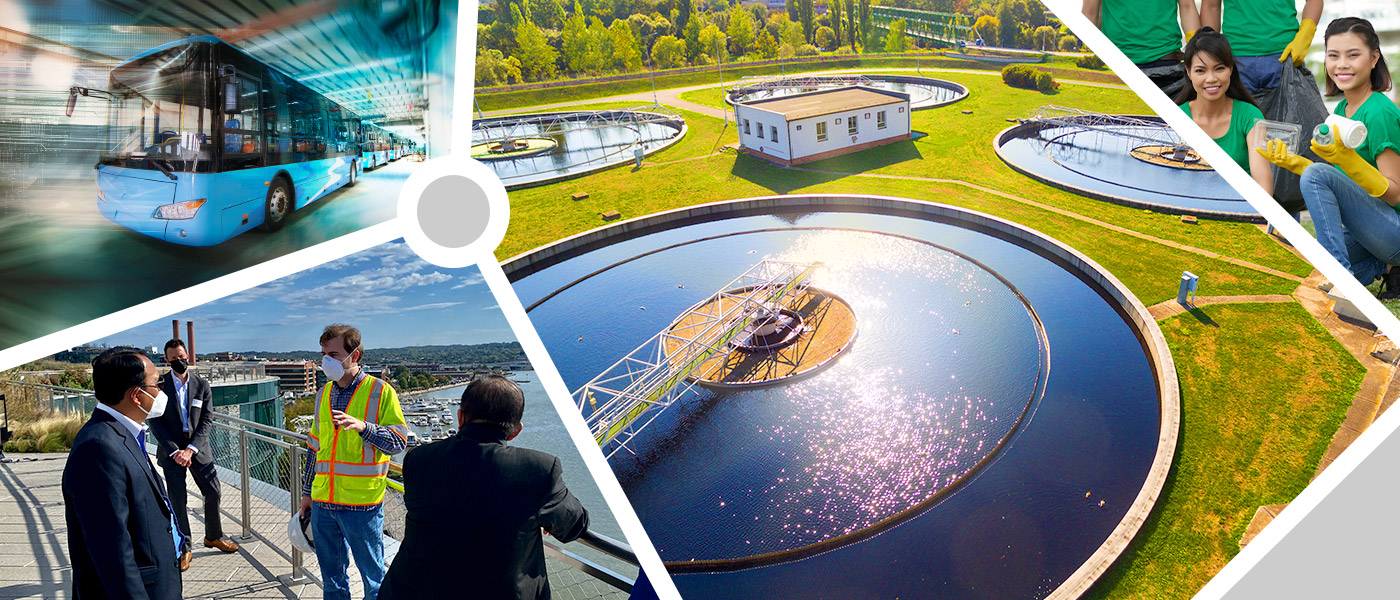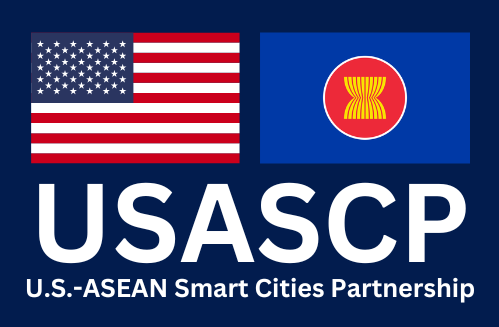FOLLOW US ON X
TO STAY UP TO DATE
WITH WHAT’S GOING ON!
Promoting sustainable and resilient solutions to advance urban quality of life in Southeast Asian Nations.

Latest
USASCP Semi-Annual Newsletter – August 2024
USASCP to Launch $3 Million Call for Proposals
USASCP Scopes Nature-Based Solution Pilot Site in Vientiane
PolyGone Holds Grand Opening for Microplastic Removal Pilot at ACUA
Highlights: 2024 Symposium on Smart Cities Innovation, Biotechnology, and Circularity
Media Note: Second Annual Symposium on Accelerating Science, Technology, and Circular Innovation in Southeast Asia: Smart Cities Innovation, Biotechnology, and Circularity
2024 Third Country Training Program (TCTP) Courses Infographic

The U.S.-ASEAN Smart Cities Partnership seeks to meet the varied challenges of rapid urbanization and help improve the lives of people in the region through collaboration.
The U.S.-ASEAN Smart Cities Partnership (USASCP) is a collaboration between the U.S. public and private sectors with the 26 pilot cities of the ASEAN Smart Cities Network (ASCN). Programs and activities are developed to promote engagement in smart sustainable city solutions and to advance the digital and circular economies in ASEAN cities, share best practices between U.S. cities and their ASEAN counterparts, and strengthen regional cybersecurity at the sub-national level.
Recent Program

 U.S.-ASEAN Smart Cities Partnership
U.S.-ASEAN Smart Cities Partnership

